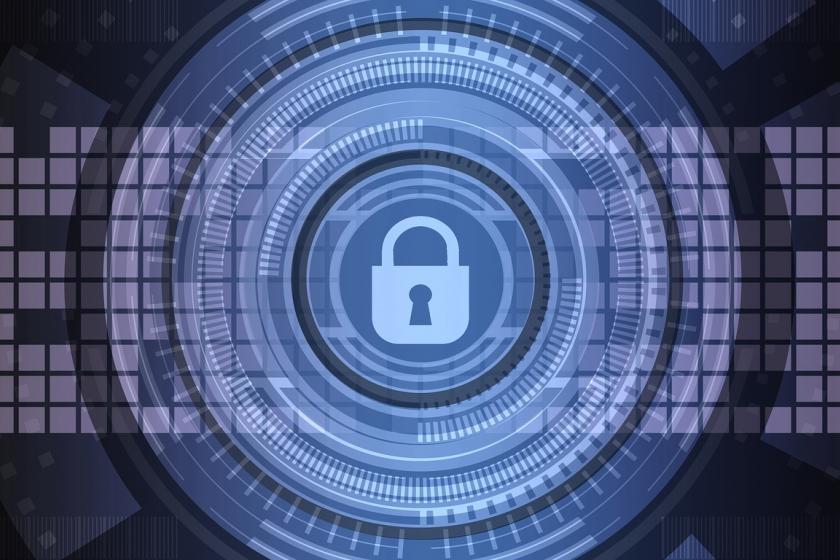5 Effective Ways to Safeguard Your Business from Data Breaches
Having effective measures in place and being aware of new, emerging styles of attack puts organizations in the best position to defend against data breaches.
August 5, 2020

Data breaches and cyberattacks have, unfortunately, become a common issue that businesses of all sizes need to guard against. High-profile cyberattacks have even impacted many well-established companies and governments, and they will only continue to increase in the coming years. In just one month alone, 1.8 billion records were stolen as a result of data breaches, emphasizing the sheer scale of the problem.
The variety and scope of cyberattacks and data breaches are also exacerbating the problem. Hackers are always changing the ways they perform a data breach, updating, refining, and adapting their methods to get around the network security in place. Organizations around the world are investing in cybersecurity capabilities to protect their critical assets. Whether it is to protect their organization’s critical assets, customer information, or intellectual capital, organizations have a responsibility to perform due diligence when it comes to protecting records and transactions. Cybersecurity and data protection should be a high priority for all organizations as companies need to stay ahead of the hackers to safeguard against data breaches.
Knowing how to prevent a data breach is crucial to running your business operations effectively and securely. Below are five effective ways to help safeguard your company from a potential data breach or attack.
1. Educate Your Employees
Human error is one of the main genesis points of a data breach. A study from IBM uncovered that 95% of all data breaches occur as the result of employee error. Even if just one of your employees opens a dangerous email or follows a link embedded with a virus, it can have a cataclysmic effect on your business. Therefore, knowing how to prevent a data breach starts by improving staff awareness.
All of your staff, from senior management to the new interns, need to be educated in what to look for in a cyberattack and just how all-encompassing the damage can be. Educating on all types of data breaches and protections is important, from phishing emails and harmful attachments to password protections and working on different devices.
Establishing this level of awareness upfront and continually educating your workforce through training programs is vital to protecting your company from a data breach.
2. Build Effective Backups
Even if you believe you are effectively protected from all forms of a data breach, backing up your data and having recovery systems in place should still be a high priority. A company’s data is one of its most valuable resources, and its level of protection needs to be reflective of that.
There should be different contingency plans in place for different network security issues, and these systems need to be monitored and updated regularly to ensure their effectiveness. All critical data should be backed up, up-to-date, and protected heavily to safeguard your business from potential attacks should the worst happen.
3. Never Stop Adapting
Cyberattacks and protection are continuously evolving. To protect against a possible data breach, companies need to be regularly adapting and improving upon their current practices. Installing software updates in a timely manner is one way to keep your enterprise up-to-date with the latest versions of security.
4. Password Protection is Pivotal
It seems like an incredibly basic and juvenile point, but the majority of businesses do not do enough to encourage good password protection. This starts with educating your employees about its importance, as many do not change their passwords regularly or become very lazy in regards to protecting them. Just simply making passwords stronger and more varied is a simple network security solution. Despite this, less than a quarter of all companies require their staff to regularly change their password, which significantly increases their risk of a data breach. By changing a password regularly, it makes it immediately harder for attackers to perform a data breach.
5. Anticipate Instead of Reacting
Conducting a vulnerability assessment will pinpoint any existing and potential threats, weaknesses, and vulnerabilities in your network. Knowing where your particular data weaknesses are will go a long way to ensuring you can anticipate and nullify a data breach before it happens.
Final Thoughts
In today's world, everything is connected. Cybersecurity is of critical importance, and the ways you safeguard your business need to be proactive, adaptive, and effective. Susceptibility to a data breach will have lasting effects on your business, both in terms of service and reputation. Irrelevant of the type of business you operate or the size that it is, these five simple ways to support your cybersecurity are key starting points for an efficient approach:
Educate Your Employees
Build Effective Backups
Never Stop Adapting
Prioritize Password Protection
Anticipate Instead of Reacting
A data breach is a dangerous, ever-present threat, the consequences of which can be devastating. By having effective measures in place, as well as being aware of new, emerging styles of attack, you can put your organization in the best position to defend and succeed.
About the Author
You May Also Like




